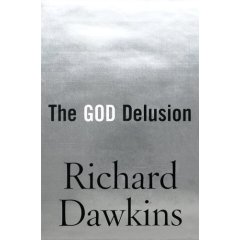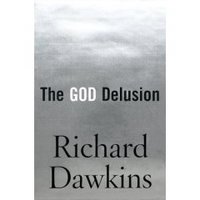
I began reading Richard Dawkins' new book
The God Delusion. I'm going to - hopefully - post my thoughts about this book as I read through it.
I can't get past page 1. Dawkins writes: "I suspect - well, I am sure - that there are lots of people out there who have been brought up in some religion or other, are unhappy in it, don't believe it, or are worried about the evils that are done in its name; people who feel vague yearnings to leave their parents' religion and wish they could, but just don't realize that leaving is an option."
But how can Dawkins "be sure" of this? Does he have empirical evidence to support this? He gives none, so why should we accept his "sureness" of this?
He shares his "delight" when a British television advertisment showed the World Trade Center with the caption "Imagine a world without religion." Then, Dawkins writes: "Imagine, with John Lennon, a world with no religion." Does he mean a John Lennon-ish world? I hope not. Lennon's son Julian
writes this of his father: "I didn't hate him but I was scared of him. I didn't know this man at all, and trying to rebuild a relationship that was never there made him as frighened of me as I was of him." Julian adds, "He wasn't a great father." Julian's step-father became his real father. Julian writes: "A lot of people don't like to hear that but on my behalf it's true." Julian saw his dad only 10 times before he was murdered.
As I skimmed through GD I saw a lot of the Dawkins' anger coming out in ad hominem abusives. Dawkins is a humorous, degrading guy. If this is atheism I know I don't want a world where Dawkins and John Lennon are the models.
For what the lives of some famous atheists were really about, see Paul Johnson's
Intellectuals. Read, for example, of the perverted behavior of the great atheist Bertrand Russell.
For the record: I don't want to live in a world modeled by myself either. But I do believe this. I am a far, far better person because of my following of Jesus than I was before. And I know many, many Christians who exemplify things I value. Like parenting, for example (contra John Lennon).
Have evils been done in the name of religion? Sadly, of course. Have atheists done "evil" things? Uh-huh. And because the overwhelming majority of persons who now live and have ever lived are religious, and only a tiny group atheist, one would expect to find proportionately more evils perpetrated in the name of religion than in the name of atheism.
Dawkins refers to Lennon's "Imagine" as a "magnificent song." I, on the other hand, think it is filled with hypocrisy.
"Imagine all the people living life in peace.
...I hope some day you'll join us and the world will be as one."
Unfortunately for Lennon's own son Julian that "world" did not include him.
















